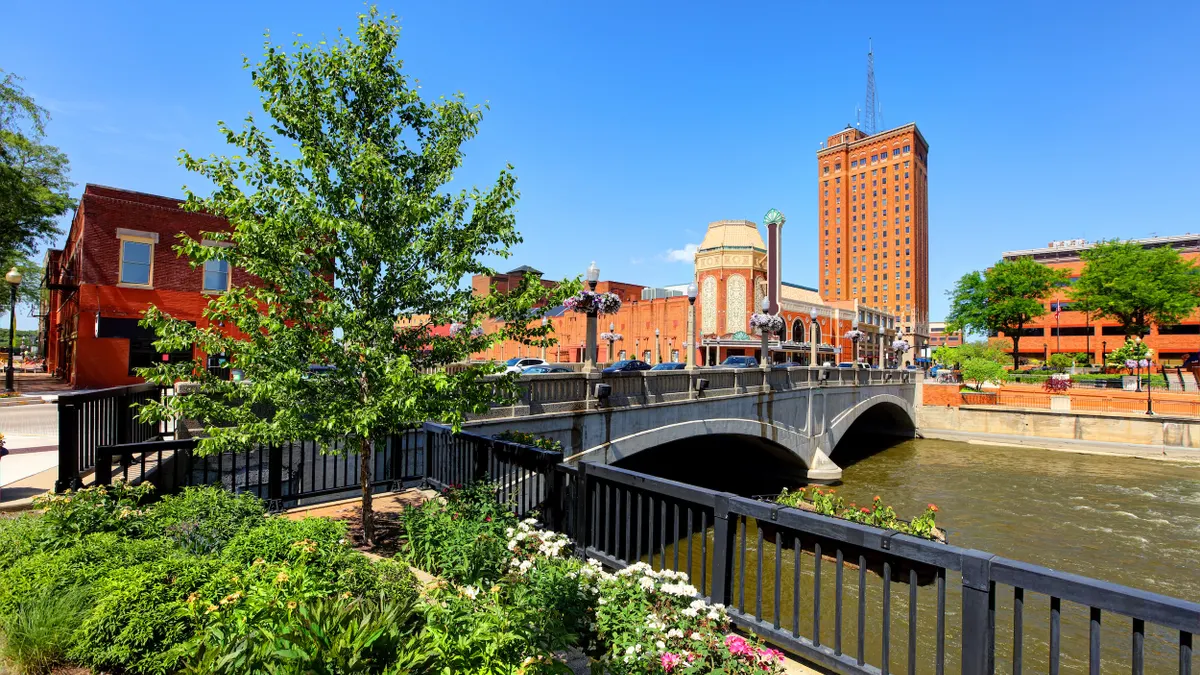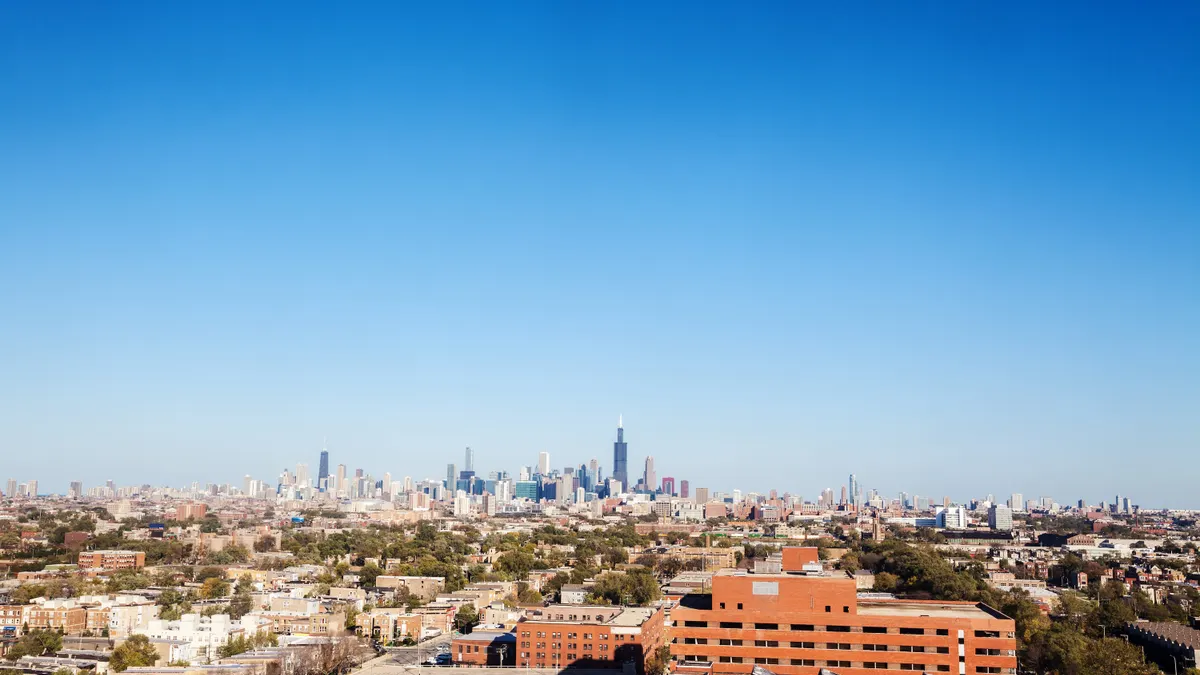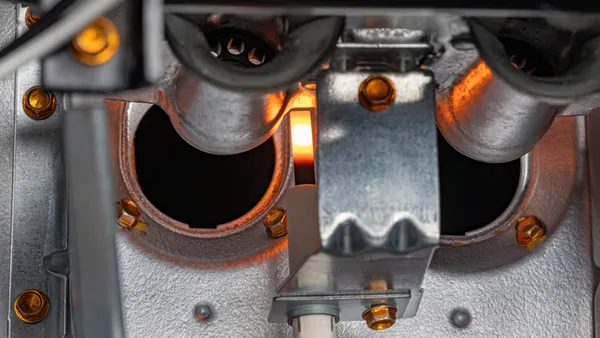Dive Brief:
-
The U.S. Green Building Council announced this week that 16 local governments from across the country will participate in the 2025 LEED for Cities Certification Cohort.
-
The program helps cities set goals, collect data and validate performance against sustainability and quality of life metrics set forth in the LEED for Cities rating system.
-
“City governments play a critical role in advancing public and environmental health, resilience and economic prosperity across their communities,” Peter Templeton, USGBC president and CEO, said in a press release.
Dive Insight:
A component of USGBC’s Local Government Leadership Program, the LEED for Cities cohort provides a framework to help members “track performance, identify opportunities for improvement and implement best practices — delivering near-term benefits and lasting positive impact,” Templeton said.
Representing a combined population of more than 14 million, the newest cohort consists of Ashland, Massachusetts; Aurora, Illinois; Brighton, Colorado; Cook County, Illinois; Delray Beach, Florida; Farmers Branch, Texas; Harris County, Texas; King County, Washington; Lafayette, Indiana; Lincoln, Nebraska; Mercer Island, Washington; Milwaukee, Wisconsin; Pittsburgh, Pennsylvania; Riverside, California; Sun Prairie, Wisconsin; and West Lafayette, Indiana.
“We’re excited to be part of the 2025 LEED for Cities cohort because it will give us the tools to better track our progress on things like energy use, water conservation, and community wellbeing,” Traci McLean, sustainability coordinator for the City of Brighton, said in a press release. “Through this program, we become part of a larger network of cities that we can learn from, set clear goals, and make data-driven decisions that move Brighton forward.”
The LEED for Cities Cohort program has helped nearly 120 local governments build plans and capacity to achieve LEED for Cities certification since it was launched in 2017.
USGBC is most widely known for its Leadership in Energy and Environmental Design, or LEED, green building certification. The LEED for Cities rating system uses a triple bottom line approach that allows city leaders to assess sustainability throughout their cities. Local governments track their performance in resilience planning, energy efficiency, access to green spaces, public health, stormwater management and green building policy. The certification process can take from six to 18 months.











